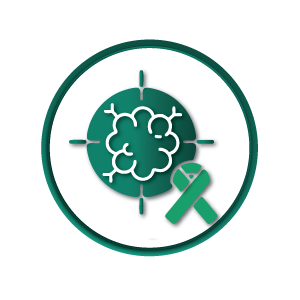Departments
ONCOLOGY
Get the best cancer treatment in India from experienced cancer doctor and world-class infrastructure at Tender Palm Hospital Hospitals.
Medical Oncology has evolved over time with comprehensive cancer care. Today’s cancer treatment encompasses multi-disciplinary treatment approach to all types of cancer- be it solid tumors or blood cancer.
- Cancer Screening: Breast cancer, Colon cancer, Cervical cancer, Prostate cancer
- The diagnosis of any cancer
- Therapy (e.g. Chemotherapy, Hormonal therapy, Immunotherapy and Monoclonal antibodies)
- Follow-up of cancer patients after successful treatment
- Palliative care of patients with terminal malignancies
- Pain management
-
-
- The aim of cancer treatment is to relieve symptoms, cure the patient, and prolong or save life. When cancer is detected early, treatment is very effective and patients are usually cured.
- In patients with advanced stage cancer, complete cure may not be possible, and its treatment aims to control the disease, improve quality of life, and keeping the patient normal and comfortable as long as possible. The treatment of each patient is designed to suit the individual and depends on many factors like age of the patient, general condition, type of cancer and stage of disease.
- Surgery and radiotherapy can eradicate the disease from the primary site (site of origin) of cancer. Chemotherapy, hormonal therapy and immunotherapy are useful for disease which may have spread outside the site of origin of cancer.
-
The main modalities of treatment for cancer are…
Chemotherapy is the treatment of cancer with one or more cytotoxic anti-neoplastic drugs (chemotherapeutic agents) as part of a standardized regimen. Chemotherapy may be given with a curative intent or it may aim to prolong life or palliate symptoms. It is often used in conjunction with other cancer treatments, such as radiation therapy, surgery, and/or hyperthermia therapy. By medical oncology, we mean treatment of cancer with the help of chemotherapeutic drugs. Chemotherapy reaffirms the efficacy of the surgery if the cancer is detected in its early stage. Chemotherapy improves the quality of life and prolongs survival in advanced stage or end-stage cancers. In conditions like Lymphoma, Leukemia and Germ Cell tumors, chemotherapy plays a curative role.
Our experienced and empathetic chemo nurses use the latest chemo delivery devices to make treatment easier. This helps patients to complete planned drug cycles and prepares them for the next line of treatment, putting them on the path to recovery. The drugs are prepared under an infection-free Laminar Hood which maintains effectiveness. Chemotherapy can be administered in day care basis.
Traditional chemotherapeutic agents act by killing cells that divide rapidly, one of the chief properties of most cancer cells. This means that chemotherapy also harms cells that divide rapidly under normal circumstances i.e. cells in the bone marrow, digestive tract, and hair follicles.
Some of the chemotherapeutic agents also play a vital role in the treatment of a host of other conditions such multiple sclerosis, Crohn’s disease, Psoriasis, Ankylosing spondylitis, psoriatic arthritis, rheumatoid arthritis, scleroderma and lupus erythematosus.
It is a known fact that chemotherapy can cause some side effects in the digestive tract, hair follicles etc. Decreased production of blood cells (myelosuppression and resultant immunosuppressant), inflammation of the lining of the digestive tract (mucositis), hair loss (alopecia) etc. are some of the common side effects of chemotherapy.
Chemotherapy may use one drug at a time (single-agent chemotherapy) or several drugs at once (combination chemotherapy or polychemotherapy). The combination of chemotherapy and radiotherapy is chemo-radiotherapy. Chemotherapy using drugs that exerts cytotoxic activity only upon light exposure is called photo-chemotherapy or photodynamic therapy.
Hormone therapy has limited use in cancer treatment since only minority of tumours are hormone sensitive e.g. breast and prostate cancer. This therapy provides systemic means of treatment to the whole body, but without the side effects of chemotherapy.
Immunotherapy is a form of treatment which stimulates the body’s immune system to destroy cancer cells. But it is expensive.
It is the use of monoclonal antibodies (or mAb) to specifically target cells. The main objective is stimulating the patient’s immune system to attack the malignant tumour cells and the prevention of tumour growth by blocking specific cell receptors.



